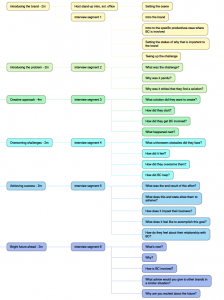One of the founding professors of Johns Hopkins Hospital, Dr. William Osler, wrote, “Banish the future. Live only for the hour and its allotted work. Think not of the amount to be accomplished, the difficulties to be overcome, or the end to be attained, but set earnestly at the little task at your elbow, letting that be sufficient for the day; for surely our plain duty is, as Carlyle says, “Not to see what lies dimly at a distance, but to do what lies clearly at hand.”
Relitigating your past is apocalyptically stupid.
Those words resonate, and you have some success when focusing on the little tasks. Regrettably, you spend a considerable amount of time relitigating the past and living in the future. These are easy stories that feed your evolutionary need for status:
- What if I would have continued playing baseball — today I would be playing for the New York Yankees.
- What if I had sex with that gorgeous girl — today she would be my wife.
- What if I took college seriously — today, I would have my Ph.D. in astrophysics and working for NASA.
This type of thinking is a life plagued with negative emotions:
- Anger
- Regret
- Fear
- Sadness
Ask yourself better questions to live a brilliant life.
The question is not, “What do you want out of life?” The question is, “What do you believe is the most valuable thing to you?” The former question does not allow for a profound investigation. When you operate at the surface, you get thin responses:
- You want to be happy.
- You want to be rich.
- You want to find your purpose.
Your answers to “What do you want out of life?” are a distraction that feeds your evolutionary need for status, which gives birth to those negative emotions.
“What do you believe is the most valuable thing to you?” is a challenging and disruptive question, which:
- re-Wires your brain.
- re-Configures your nervous system.
- Rearranges the way your emotions are processed.
In short, you are forced into deep thinking:
- What is my most unforgettable memory? Why?
- What value has my wife added to my life? What achievements of mine can I give her credit for?
- How does my son influence my life decisions, feelings, and behavior?
Do not just let the answers percolate in your mind. Instead, write your thoughts down on paper, do not type them out. Writing your thoughts is a slow process, and it forces your brain to engage in heavy mental lifting. The heavy lifting informs other questions and promotes understanding.
American Philosopher Brand Blanshard writes about Emperor Marcus Aurelius, “Few care now about the marches and countermarches of the Roman commanders. What the centuries have clung to is a notebook of thoughts by a man whose real life was largely unknown who put down in the midnight dimness not the events of the day or the plans of the morrow, but something of far more permanent interest, the ideals and aspirations that a rare spirit lived by.”
If you continue relitigating the past and living in the future — you will forever be seeing life through the lens of regret, which is a poorly lived life. Instead, uncover what is of value to you and let that purpose inform your hours and its allotted work. As the accomplishments build towards what you value — the perspective gives you patience and clarity.
Business & Finance Articles on Business 2 Community
(37)







